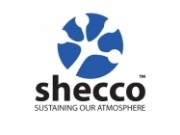We are happy to announce the second round of case studies from Alfa Laval, Nidec, Panasonic, and TEKO to be presented at ATMOsphere Japan 2018.
The ATMOsphere Review Panel is pleased to announce the second round of case study selections for ATMOsphere Japan 2018 taking place on 13 February in Tokyo.
Alfa Laval, Nidec, Panasonic, and TEKO will discuss their innovative natural refrigerant-based technologies at the conference.
The presentations are:
Alfa Laval: Plate heat exchangers for Natural Refrigerants by Rolf Christensen
This case study will focus on the results and benefits of plate heat exchangers used in Japan with natural refrigerants like ammonia and CO2. Details will be provided on a unique plate design optimized for flooded ammonia evaporation, as well as features for separating liquid droplets and gas, separating oil and liquid, and an integrated liquid recirculation channel.
Nidec Global Appliance: Benefits of Hydrocarbon Refrigerants and Variable Speed Compressors in Light Commercial Applications by Hansen Peter Michael
This case study will detail the conversion of low temperature island freezers from HFCs (R404A) to hydrocarbons (R290). The energy efficiency benefits of Variable Speed Compressor technology will also be covered as they relate specifically to the Japanese market - offering flexibility in voltage and frequency.
Panasonic: CO2 refrigeration system for freezing equipment in the food retailing industry in Japan by Manabu Onishi
This case study will focus on the current progress being made with introducing Panasonic's 30 HP cascade and waste heat utilization system into the market. Additionally, the case study will discuss the future challenges in spreading the technology further in the market as well as what further technical and product development work is currently being done.
TEKO: Transcritical CO2 for cold storage and warehouse applications by Andreas Meier
This case study will detail an application of transcritical CO2 technology for a large fruit and fresh produce storage facility. With the Japanese industrial refrigeration market now opening up to larger applications of transcritical CO2 technology, this case study will present the details of using a transcritical CO2 system with parallel compression, and ejector technology to decrease the energy consumption of a 6,450 m2 cold storage space by 18%.
